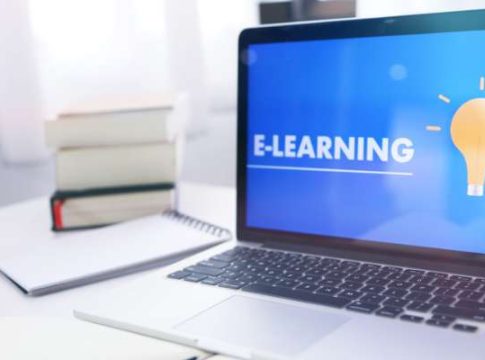The Transformative Power of Text-to-Speech in E-Learning
In the rapidly evolving landscape of education, e-learning platforms are revolutionizing how students access knowledge. Among the innovations driving this change, text-to-speech (TTS) technology stands out as a game changer. By converting written content into spoken words, TTS is not only enhancing user engagement but also making learning more inclusive and accessible than ever before.
Understanding TTS Technology
Text-to-speech technology has come a long way since its early, robotic origins. Today’s advanced TTS systems utilize sophisticated AI algorithms to create remarkably lifelike voices. This leap in quality has solidified TTS as an indispensable tool for e-learning, transforming static text into dynamic learning experiences.
The Global E-Learning Boom
The e-learning market is projected to exceed a staggering $400 billion by 2026. As online learning platforms continue to gain traction globally, TTS technology plays a vital role by enhancing content accessibility, especially for diverse audiences. With TTS, learners can listen to materials, allowing for a more flexible educational environment that accommodates varying linguistic and educational backgrounds.
Enhancing Accessibility and Engagement
TTS technology significantly improves accessibility for individuals with visual impairments, learning disabilities, and cognitive challenges like dyslexia. By offering auditory content, TTS reduces barriers that may hinder learning, creating a more inclusive experience.
Furthermore, TTS boosts engagement by enabling an interactive learning process. Students can listen to materials at their own pace, pause when needed, and combine auditory cues with visual elements like images and videos. This multisensory approach facilitates better retention and understanding of complex topics.
Personalization at Its Core
One of the most compelling aspects of modern e-learning is the ability to personalize the educational experience. TTS allows for customization, enabling learners to adjust speed, tone, and even language preference. Such flexibility caters to individual needs, making the learning process more effective and enjoyable.
Bridging Language Gaps
Multilingual education is another area where TTS shines. E-learning platforms are increasingly incorporating TTS to offer content in various languages, helping non-native speakers grasp concepts more easily. Accurate accents and pronunciations enhance comprehension, making educational resources more universally accessible.
Focus on Special Education
In the realm of special education, TTS has emerged as a crucial ally for students facing cognitive challenges such as ADHD or autism. For many, listening can be a more engaging alternative to traditional reading, providing a consistent and adaptable learning environment tailored to their unique needs.
Technological Advancements on the Horizon
The future of TTS technology is brimming with potential. Innovations like AI-driven emotional tone integration aim to make TTS voices even more natural and expressive. As machine learning continues to improve, these advancements will likely enhance both accessibility and personalization for learners around the globe.
Challenges to Consider
Despite its benefits, TTS usage is not without challenges. The quality of synthesized voices can vary significantly, and limitations in internet connectivity may affect access. Nevertheless, as TTS technology matures, these issues are being progressively addressed.
Companies Leading the Charge
Duolingo, for example, leverages TTS to offer language learners the chance to hear phrases in diverse accents. Khan Academy integrates TTS to assist students with reading challenges, while ReadSpeaker is utilized by various institutions to convert online content into speech, thereby fostering inclusivity.
Conclusion: A Bright Future Ahead
Text-to-speech technology is fundamentally reshaping the e-learning landscape. By building inclusivity, enhancing engagement, and bridging language divides, TTS is paving the way for a more personalized educational experience. As AI continues to advance, we can anticipate even greater capabilities from TTS, helping learners from all corners of the globe reach their full potential.
This evolution marks not only a progression in educational tools but also a significant step towards democratizing access to knowledge. As we embrace these changes, the future of learning appears more accessible and promising than ever.

Writes about personal finance, side hustles, gadgets, and tech innovation.
Bio: Priya specializes in making complex financial and tech topics easy to digest, with experience in fintech and consumer reviews.

